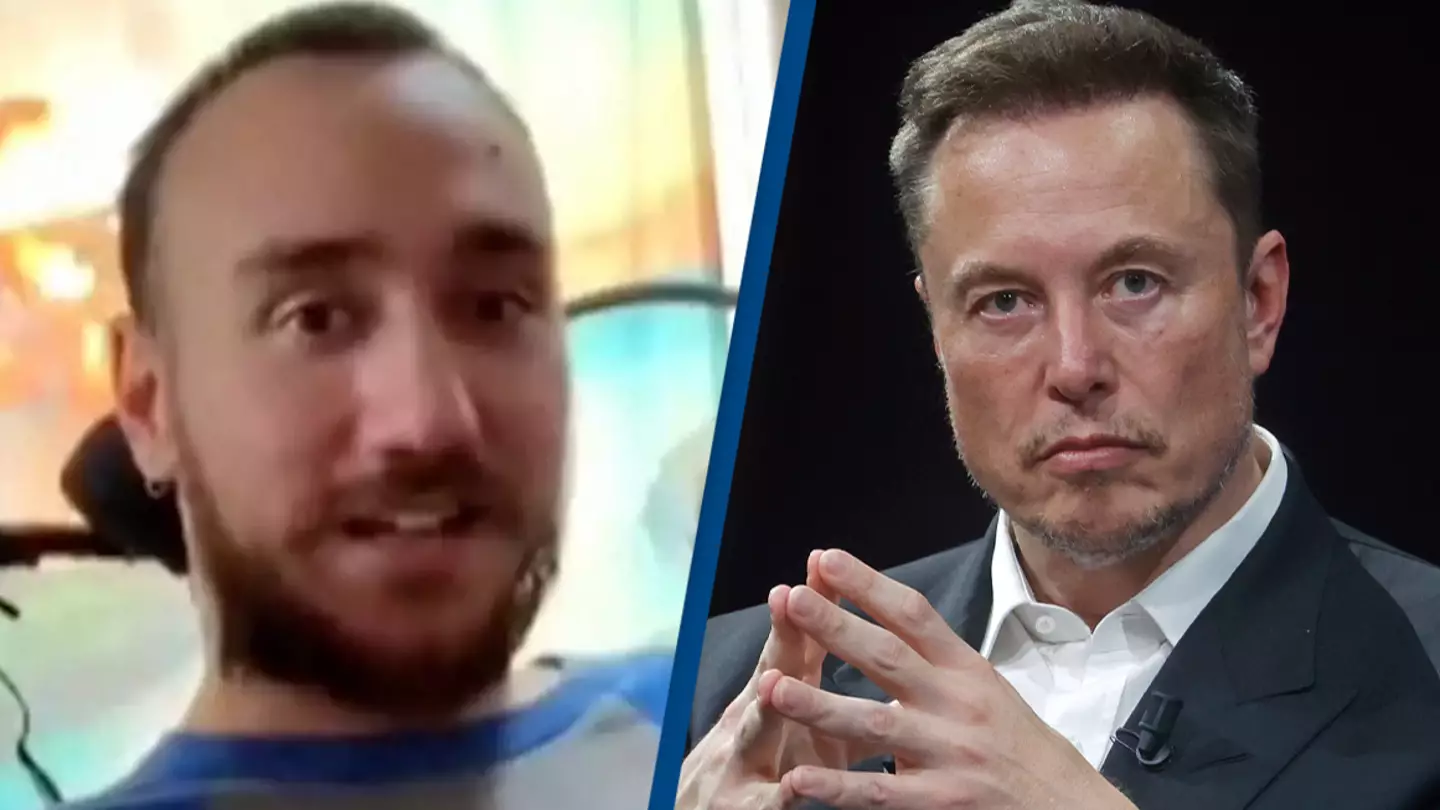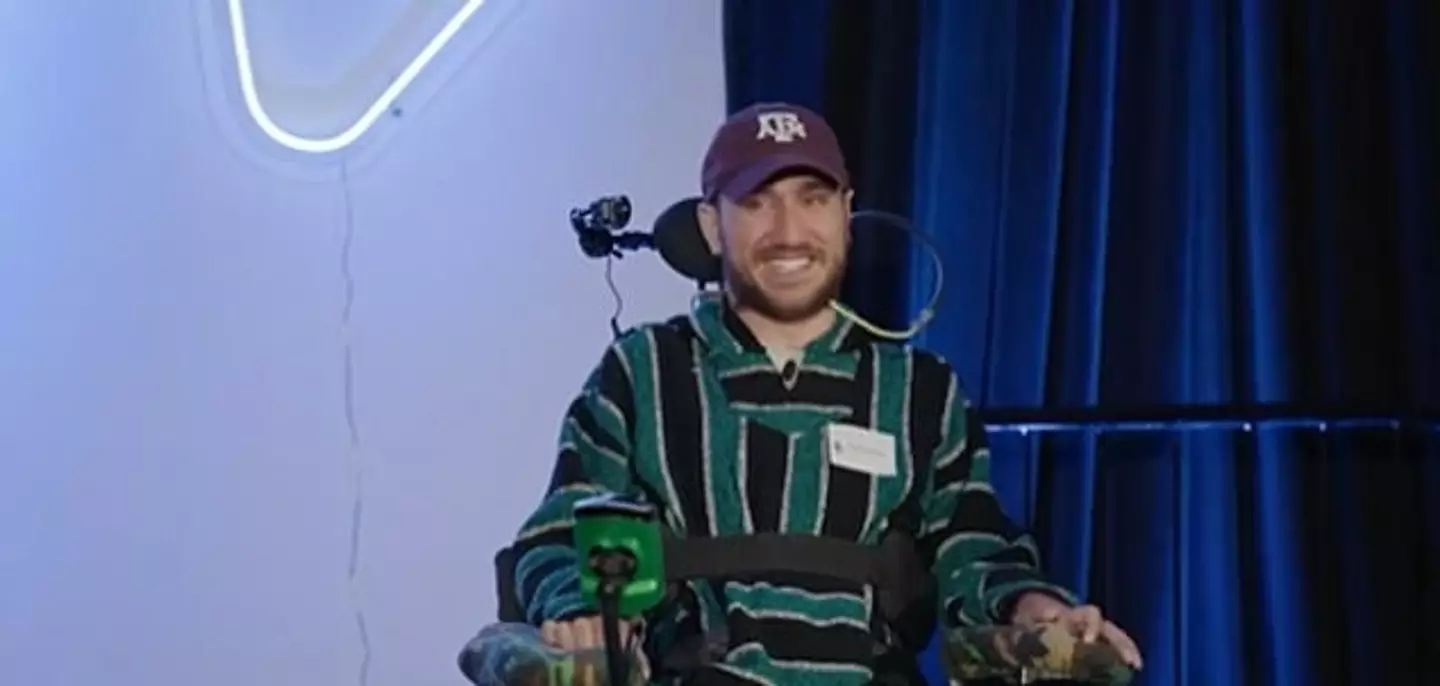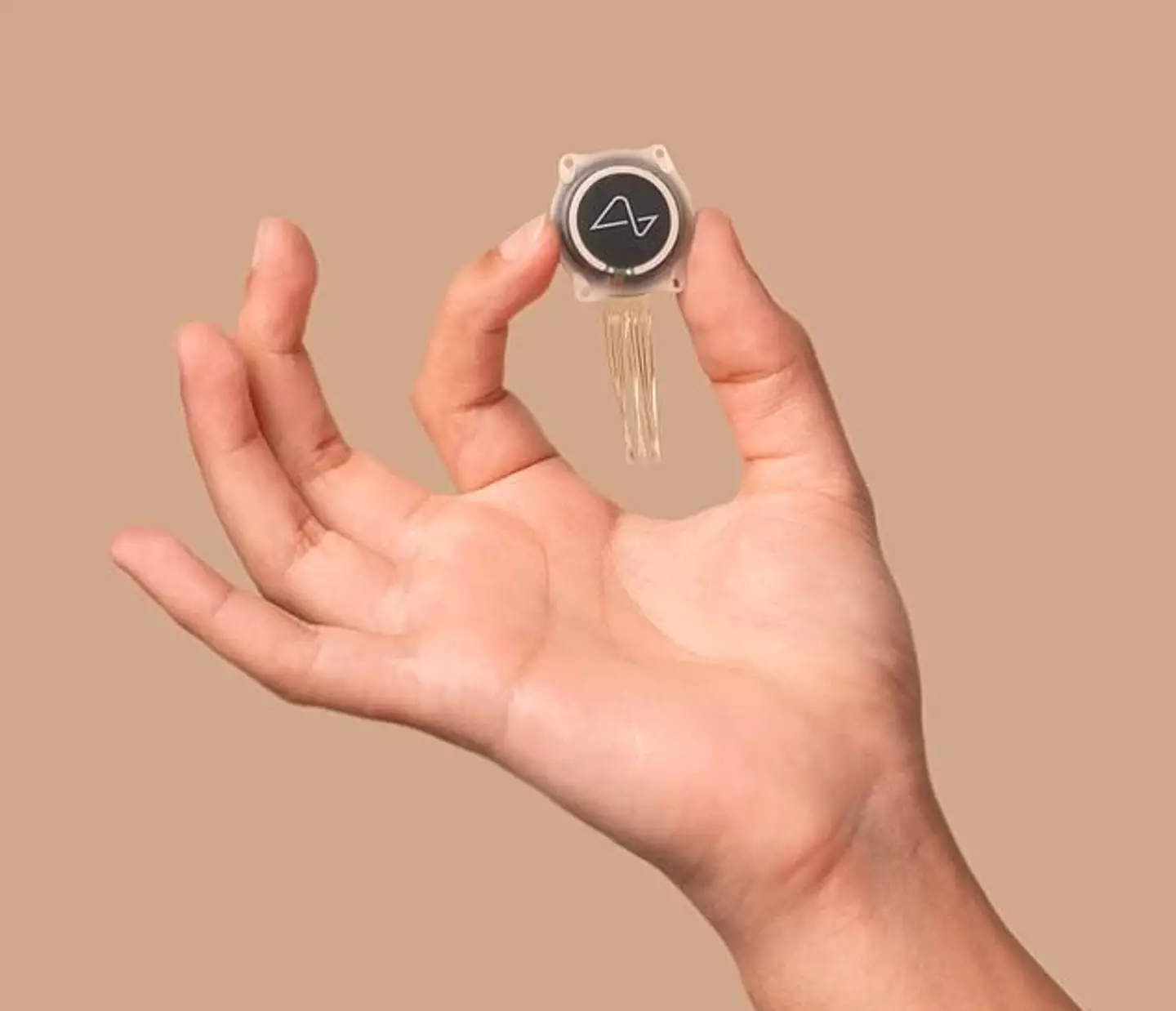
Elon Musk has shared an update on the first person to have a Neuralink device implanted in their brain.
The project has now moved on to human trials, with recipient Noland Arbaugh now passing more than 100 days with the device.
Arbaugh suffered from life-changing injuries following a car crash while he was working as a camp counsellor in 2016.
Advert
The incident left him with 'absolutely no feeling' from his shoulders and below.
He became the first person to have a Neuralink device implanted into his brain, which he has since been able to use to control a computer.
The procedure was carried out on January 27 and lasted just 30 minutes, including a 'sewing machine-like' robot which removed a small section of his skull and implanted the chip.
Advert
An update from the company, which is owned by Elon Musk, has now clarified some challenges they have faced.
Neuralink has confirmed that part of the implant malfunctioned in the weeks after the procedure.
The device works using 64 'threads' which Neuralink claims are thinner than a human hair.

These pickup on signals from the brain which are then interpreted into signals.
Advert
But in the weeks after the procedure a number of threads have retracted from Arbaugh's brain, the company explained in a blog post, though they did not disclose how many threads had retracted.
This meant that the device would not pick up on the brain's signals as effectively.
Neuralink has since announced it has updated the software in the device to improve how it picks up on signals.
According to reporting from the Wall Street Journal, Neuralink did consider removing the device, but decided against it as there was no direct risk to Arbaugh's safety.

For his part, the blog post said that Arbaugh said the device is a 'luxury overload' which has helped him to 'reconnect with the world'.
Advert
Arbaugh, 29, said: "[The Link] has helped me reconnect with the world, my friends, and my family.
'It's given me the ability to do things on my own again without needing my family at all hours of the day and night."
Neuralink is not the only company that is working on implanting a device into someone's brain.
It is hoped that the technology can be used to help people with conditions such as paralysis to be able to interact with the world more.
Advert
However, there is still a long way to go before the technology can be approved by the US Food and Drug Administration.
Topics: News, US News, Elon Musk, Technology, Health
